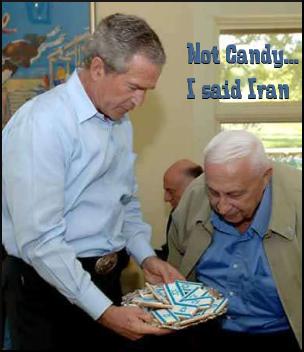Home > Downing Street Memo Hearing: What was the real motivation for the Iraq War?
Downing Street Memo Hearing: What was the real motivation for the Iraq War?
by Open-Publishing - Sunday 17 July 2005Wars and conflicts International USA UK
This is a Partial Transcript form Conyers Downing Street Minutes Hearing June
16
REP JIM MORAN: What I would like to do is to get back to why we did
do it. We understand that the reasons that we were given were part
of an endemic pattern of deceit. They were not the real reason. But
what do you think was the real reason?
It’s been suggested that the oil companies were concerned Saddam
was giving contracts to Russia and France, and maybe that’s what it
was, we wanted to get control over the oil.
It’s been suggested that rather than being the president of a
failed economy, which was the situation in 2003, that being
commander in chief of a mighty military was a lot better political
position to be in.
There was a suggestion that, while Iraq was no threat to the United
States, Iraq could have been a threat to our ally in the Middle
East.
What was the real motivation, in your mind, to why we did go to
work in Iraq?
MR. BONIFAZ: All of the above.
MR. MORAN: All of the above.
MR. McGOVERN: Yeah. I use the acronym OIL. O for oil, I for Israel,
L for the logistical base necessary, or deemed necessary by the
so-called neocons, and it reeks through all their documents, the
logistical military base whereby the United States and Israel can
dominate that area of the world.
It’s a very strategically important area of the world, mostly
because it has oil but also because Israel, which is traditionally
described as our ally—and I don’t know of any alliance we have
with Israel—has been very influential in our policy.

Witness the fact that the first President Bush’s national security
advisor, Scowcroft, has described the president as being mesmerized
by Ariel Sharon, who has our president wrapped around his little
finger.
So what I’m saying here is oil was a major factor, Israel was
another factor—and I have to say that Israel is something that is
not allowed to be brought up in polite conversation; last time I
did this, the previous director of central intelligence called me
antisemitic—and the other thing is the ideological strategic
vision of the so-called neocons. You can see it in their documents.
We are the sole remaining superpower in the world. We would be
remiss in our duty were we not to use this power in every
strategically important part of the world, and what’s more
important than the Middle East?
...
| <table style= "background-color: rgb(255, 255, 255); background-image: url(images/rwb-bg.png); font-family: monospace; width: 200px; text-align: left;" align="right" border="0" cellpadding="4" cellspacing="1"> |
| <span style=
"font-family: serif; font-weight: bold;">Downing Street Memo Audio <span style= "font-family: serif; font-weight: bold;"><a href= "dsm_podcast.xml"><img style= "border: 0px solid ; width: 80px; height: 15px;" alt="" src= "images/mp3-podcast.gif"> (mp3s: rt-click -> save as) |
| 1. McGovern - We now Know |
| 2. Why? O.I.L. |
| 3. Rep. Hinchey - Critical |
| 4. Bonifaz: The Source |
| 5. House Cleaning |
| 6. Should we stay or go? |
| 7. Congressional Coverup |
| 8. It’s Over for G.W. Bush |
With respect to Powell and Condoleezza Rice, Colin Powell earned
his persona, his self-image by saluting the person on top. He was
constitutionally unable to act otherwise. I think he knew chapter
and verse about the charade that was being constructed and he went
ahead anyway because he knew no other way.
That’s harsh. I know him well. He grew up a mile from me in the
Bronx. But I know the syndrome. When you come up that way, you
salute.
Condoleezza Rice, I have to say that her record for veracity is
undistinguished. When you look at all the things she said about
9/11, all them—well, it’s on your record, all the things that she
said that turned out not quite to be true.
Now, preemption. I was sort of worried about preemption. I’m a
student of history and of some political science. I may be wrong,
but preemption has no place under international law. There is no
international law blessing of the doctrine of preemption, or
prevention, or however you want to call it. And that was one of the
problems that the British laws were running into. You have to have
an imminent threat and you have to be able to prove that somebody’s
about to attack you. And nothing was farther from the truth.
And so we have a real problem if we sit back and we say, oh, we
have a new national security strategy, preemption. It’s a little
different from containment. Well, it’s a lot different from
containment. It’s illegal. We ought to make that point to the
American people until we come to change it.
<a href=
"http://www.archive.org/download/dsm2/dsm-mcgovern2-k148c.mp3">DSM
Audio #2: What was the real motivation? (MP3)




